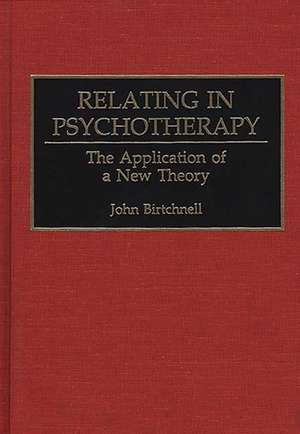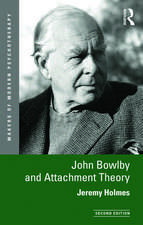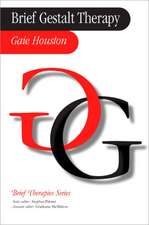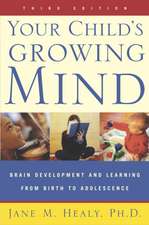Relating in Psychotherapy: The Application of a New Theory: Human Evolution, Behavior, and Intelligence
Autor John Birtchnellen Limba Engleză Hardback – 27 feb 1999 – vârsta până la 17 ani
| Toate formatele și edițiile | Preț | Express |
|---|---|---|
| Paperback (1) | 248.47 lei 6-8 săpt. | |
| Taylor & Francis – 2 mai 2002 | 248.47 lei 6-8 săpt. | |
| Hardback (2) | 302.95 lei 6-8 săpt. | |
| Taylor & Francis – 13 noi 2017 | 302.95 lei 6-8 săpt. | |
| Bloomsbury Publishing – 27 feb 1999 | 469.07 lei 6-8 săpt. |
Din seria Human Evolution, Behavior, and Intelligence
- 19%
 Preț: 363.64 lei
Preț: 363.64 lei - 29%
 Preț: 564.64 lei
Preț: 564.64 lei - 30%
 Preț: 597.07 lei
Preț: 597.07 lei - 24%
 Preț: 464.40 lei
Preț: 464.40 lei - 28%
 Preț: 437.07 lei
Preț: 437.07 lei - 18%
 Preț: 321.93 lei
Preț: 321.93 lei - 28%
 Preț: 435.37 lei
Preț: 435.37 lei - 27%
 Preț: 466.07 lei
Preț: 466.07 lei - 28%
 Preț: 344.98 lei
Preț: 344.98 lei - 24%
 Preț: 363.89 lei
Preț: 363.89 lei - 34%
 Preț: 469.41 lei
Preț: 469.41 lei - 24%
 Preț: 462.87 lei
Preț: 462.87 lei - 24%
 Preț: 363.06 lei
Preț: 363.06 lei - 24%
 Preț: 364.40 lei
Preț: 364.40 lei - 28%
 Preț: 461.43 lei
Preț: 461.43 lei - 27%
 Preț: 438.24 lei
Preț: 438.24 lei - 28%
 Preț: 437.24 lei
Preț: 437.24 lei - 30%
 Preț: 552.99 lei
Preț: 552.99 lei
Preț: 469.07 lei
Preț vechi: 605.13 lei
-22% Nou
Puncte Express: 704
Preț estimativ în valută:
89.75€ • 93.71$ • 74.28£
89.75€ • 93.71$ • 74.28£
Carte tipărită la comandă
Livrare economică 04-18 aprilie
Preluare comenzi: 021 569.72.76
Specificații
ISBN-13: 9780275963767
ISBN-10: 0275963764
Pagini: 288
Dimensiuni: 156 x 235 x 27 mm
Greutate: 0.61 kg
Ediția:New.
Editura: Bloomsbury Publishing
Colecția Praeger
Seria Human Evolution, Behavior, and Intelligence
Locul publicării:New York, United States
ISBN-10: 0275963764
Pagini: 288
Dimensiuni: 156 x 235 x 27 mm
Greutate: 0.61 kg
Ediția:New.
Editura: Bloomsbury Publishing
Colecția Praeger
Seria Human Evolution, Behavior, and Intelligence
Locul publicării:New York, United States
Notă biografică
JOHN BIRTCHNELL is Senior Lecturer at the Institute of Psychiatry, De Crespigny Park, London. Involved in full-time psychiatric research since 1967, Dr. Birtchnell has edited the British Journal of Medical Psychology as well as numerous journal articles and a companion volume How Humans Relate: A New Interpersonal Theory (Praeger, 1993).
Cuprins
PrefaceRelating and Its Relevance for PsychotherapyThe Inner Brain and the Outer BrainThe Proximity Axis in RelatingThe Proximity Axis in PsychotherapyThe Power Axis in RelatingThe Power Axis in PsychotherapyInterrelatingInterrelating in PsychotherapyMeasuring Relating and Interrelating in PsychotherapyThe Emergence of a New Approach to PsychotherapyReferencesIndex
Recenzii
'Birtchnell has developed instruments for measuring incompetence in relating [ ] and gives instances of both research and clinical use of these in a lucid manner that draws the reader like a magnet.' - Counselling and Psychotherapy Journal
'I commend this book to you. The theory cuts across all forms (schools) of therapy, and is a way of describing each school in terms of relating, in both the client and the therapist ... I hope it will be widely read.' - Dale Mathers, Member of the International Association of Analytical Psychology
'For individual, group, couple and family therapists, Relating in Psychotherapy does an excellent job of providing a theory that helps in thinking about two important aspects of human relating (proximity and power), measuring difficulty in these areas, and providing a psychotherapeutic approach that is valid in many formats and the effect of which is measurable.' - Jill Savege Scharff, International Institute of Object Relations Therapy, Washington
'This book is easy to read, well structured, and demonstrates the author's wide knowledge of different psychotherapies The author should be congratulated for his painstaking work in developing a theory, putting it into practice, and producing meaningful measurement. This is a formidable attempt to produce an evidence-based psychotherapy.' - Anthony W. Bateman, Secretary of the Psychotherapy Faculty of the Royal College of Psychiatrists
'Birtchnell has developed instruments for measuring incompetence in relating [ ] and gives instances of both research and clinical use of these in a lucid manner that draws the reader like a magnet.' - Counselling and Psychotherapy Journal
'I commend this book to you. The theory cuts across all forms (schools) of therapy, and is a way of describing each school in terms of relating, in both the client and the therapist ... I hope it will be widely read.' - Dale Mathers, Member of the International Association of Analytical Psychology
'For individual, group, couple and family therapists, Relating in Psychotherapy does an excellent job of providing a theory that helps in thinking about two important aspects of human relating (proximity and power), measuring difficulty in these areas, and providing a psychotherapeutic approach that is valid in many formats and the effect of which is measurable.' - Jill Savege Scharff, International Institute of Object Relations Therapy, Washington
'This book is easy to read, well structured, and demonstrates the author's wide knowledge of different psychotherapies The author should be congratulated for his painstaking work in developing a theory, putting it into practice, and producing meaningful measurement. This is a formidable attempt to produce an evidence-based psychotherapy.' - Anthony W. Bateman, Secretary of the Psychotherapy Faculty of the Royal College of Psychiatrists
'Birtchnell has developed instruments for measuring incompetence in relating [ ] and gives instances of both research and clinical use of these in a lucid manner that draws the reader like a magnet.' - Counselling and Psychotherapy Journal
Descriere
Descriere de la o altă ediție sau format:
Explains how the relevance of Birtchnell's theory as a basis for the science of relating relates to the practice of psychotherapy.
Explains how the relevance of Birtchnell's theory as a basis for the science of relating relates to the practice of psychotherapy.


















